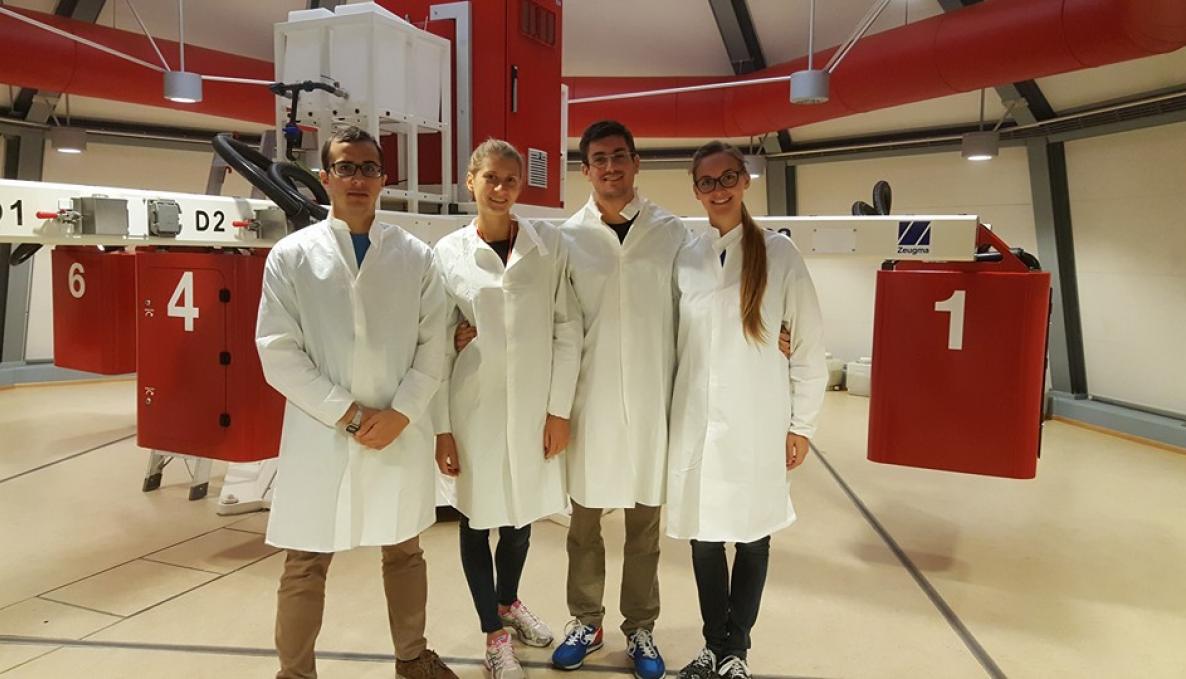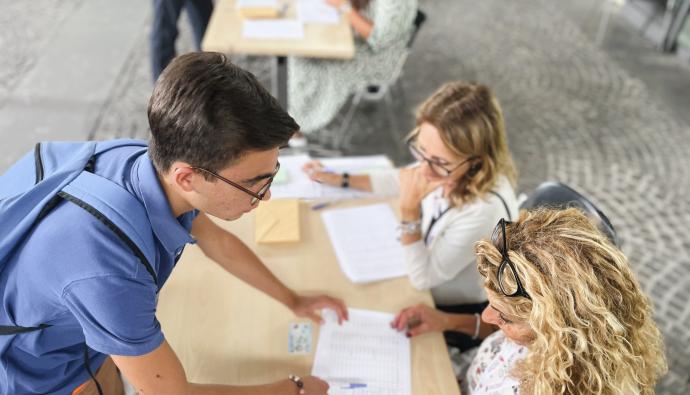MEDICAL SCIENCES: EXPOSURE TO MICROGRAVITY AND HYPERGRAVITY AFFECTS IMMUNE FUNCTION – PROMISING RESULTS FOR NEW APPLICATIONS IN TREATING DISEASES ON EARTH; ESA HAS SELECTED THE “HYPE” TEAM TO PERFORM HYPERGRAVITY EXPERIMENTS IN THE NETHERLANDS

How humans adjust to changes in gravity, zero gravity or hypergravity? Prolonged weightlessness, but also prolonged hypergravity can cause symptoms of motion sickness. Experiments performed in a “large diameter centrifuge” will give results and useful suggestions to prevent or delay the onset of aging-associated and physical inactivity diseases.
For "Spin your thesis!" 2016 campaign, the European Space Agency selected the project proposal developed by an Italian team, coordinated by Debora Angeloni, researcher of the Institute of Life Sciences at the Sant'Anna School - Pisa.
The team "Hype" (short for "Hypergravity Effect on Endothelium") coordinated by the Sant'Anna School team, has been named to conduct hypergravity experiments in the "large diameter centrifuge", a "spin" of 8 meters in diameter which allows for gravity conditions greater than Earth's, installed in the European for space research and technology centre (Estec), Holland, Noordwijk.
The 2016 campaign "Spin your thesis!" winners include “Hype” team, “PlanOx” team (Ph.d. students of Sant'Anna BioRobotics Institute); Cmbr centre of Italian Institute of Technology - Pontedera, coordinated by Gianni Ciofani; and faculty members of University of Pisa.
This is a great opportunity for the team led by Debora Angeloni and including Chiara de Cesari and Olga Pyankova, PhD students in Translational Medicine at Sant'Anna School; Marco Maria Germani, medical student at Sant'Anna School; Matteo Vezza, student at the University of Pisa who collaborates with the laboratory directed by Debora Angeloni. The research activity carried out by the "HypE" group aims at understanding the molecular mechanisms involved in the regulation of human endothelial cells exposed to changes in gravity, the cells that line the inside of our blood vessels. The functional alterations of these cells are in fact connected to several disorders reported by astronauts returning from space missions and are the same as observed in elderly population suffering from complications caused by prolonged inactivity.
"The force of gravity - says Debora Angeloni - has significantly contributed to shape the life forms we know today. Studying the biological effects of weightlessness can provide valuable information on the structural and functional organization of living organisms, facing sometimes unexpected associations on the boundary between health and disease. But the microgravity represents only one side of the coin, the other is hypergravity. For this reason, after leading an experiment aboard the International Space Station in 2015, our research group - continues Debora Angeloni – focused on hypergravity effects. From the 2016 studies we expect findings on markers of inflammation and degeneration useful for preventing and treating diseases common to both astronauts returning from space and aging population ".



